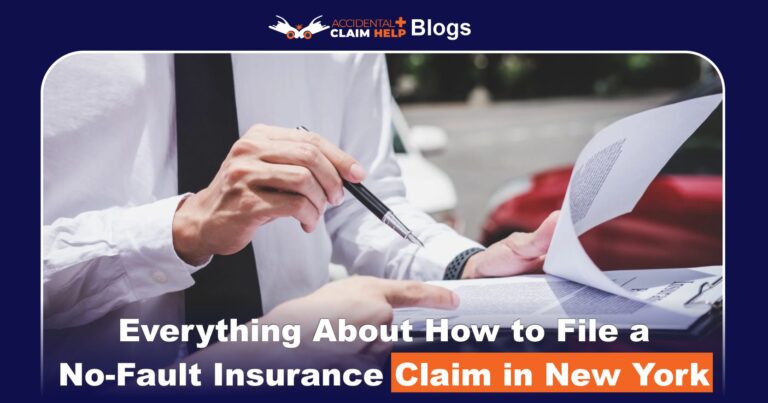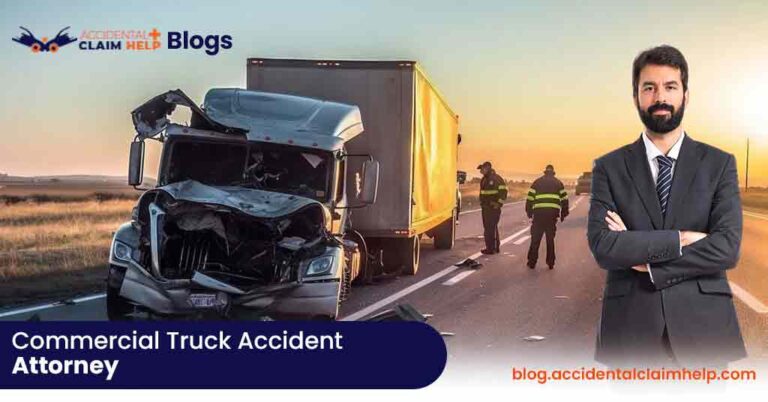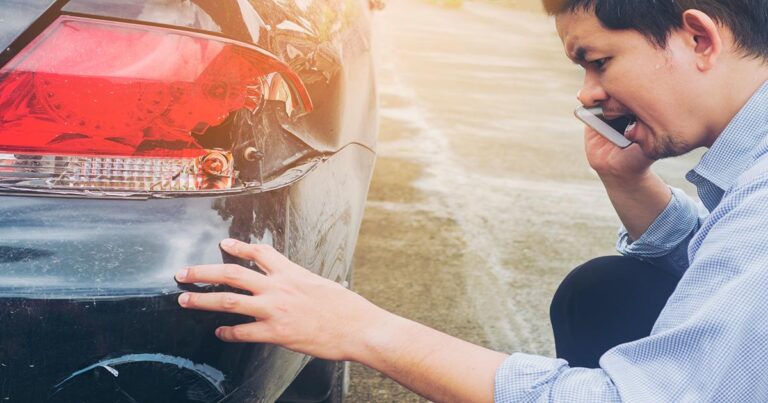How to Handle a Car Accident in Georgia: Immediate Steps
If you’re involved in a car accident in Georgia, stay calm and act safely and legally right away. Immediately stop in a safe location and turn on hazard lights to alert other drivers. Check for injuries and call 911 if anyone is hurt. Georgia law requires drivers to report any crash that causes injury, death, or over $500 in property damage. At the scene, exchange your name, address, driver’s license and insurance details with the other driver. These steps in how to handle a car accident in Georgia protect your safety, meet legal requirements, and preserve evidence for insurance claims.
Immediate Steps to Take at the Scene of a Georgia Crash
Right after a collision, your first priorities are safety and complying with Georgia law. Stay in your vehicle if oncoming traffic is dangerous, then follow these actions:
- Stop safely and move out of traffic: Pull over to the side or shoulder if possible. Keep your car’s hazard lights on so others can see the wreck ahead.
- Check for injuries and call 911: Look after yourself and any passengers. If anyone is injured or knocked unconscious, call emergency services immediately.
- Render reasonable aid: If it’s safe, offer basic help (like stopping bleeding or keeping injured people warm) until paramedics arrive. Georgia’s Good Samaritan law protects you when giving emergency care.
- Notify law enforcement: If the accident involves any injury, death, or more than $500 in damage, you are required to report it to the police. This usually means calling 911 or the local police. The officer will create an official crash report, which is crucial for insurance and legal purposes.
- Exchange information and document the crash: Get the other driver’s full name, address, insurance carrier and policy number, license plate, and driver’s license number. If possible, take clear photos of each vehicle’s damage, license plates, the scene, skid marks, and your own injuries. Also note down the time, date, and weather or road conditions. If there are witnesses, politely ask for their names and phone numbers – their statements can be valuable later.

In Georgia, you must remain at the scene of any crash that causes damage or injury. It is illegal to leave before giving your information to the other driver and to the police. Georgia’s Uniform Rules of the Road (O.C.G.A. § 40-6-270) make it a misdemeanor – or even a felony if someone was killed or seriously hurt – to flee an accident. In other words, don’t drive away; stay calm, stay safe, and follow the law.
Ensure Safety and Call for Help After a Collision
Your first task is to stay safe and alert emergency crews if needed. Once the crash occurs, keep everyone as still and protected as possible. If the vehicles are still running, turn off the engines to reduce fire risk. Position reflective warning triangles behind the cars if you have them, and keep passengers – especially children – away from the road. Georgia’s driving manual advises activating hazard lights and using reflective devices to warn others.
Carefully check for injuries. Even if someone seems fine, ask about pain or numbness – many injuries (like whiplash, concussions, or internal bleeding) may not show symptoms immediately. If anyone is hurt or if there’s heavy damage, call 911 right away. The dispatcher will send police, fire, or medical help. Emergency responders will also take over traffic control and write up the accident report. Remember: in Georgia, reporting a wreck with any injury or major damage is mandatory. Failing to call the police when required can lead to penalties under state law.
Exchange Information and Document the Scene
Once everyone is safe and help is on the way, exchange details with the other driver(s) carefully. By Georgia law, you must give your name, address, vehicle registration number, and driver’s license number to the other parties. Do the same for their information. Also provide your insurance company’s name and policy number. Writing everything down or taking a photo of the license and insurance card ensures accuracy.
Avoid discussing fault or apologizing – even a simple “I’m sorry” can be seen as admitting responsibility and hurt your case later. Just stick to factual answers if the other driver or police ask what happened.
While still at the scene, document evidence of the crash. Use your phone or camera to snap pictures of all vehicles from multiple angles, capturing damage, license plates, and location landmarks. Photograph any road signs, traffic signals, skid marks, debris, and the position of cars. Take photos of any visible injuries on yourself or passengers. These images can be powerful proof later. If there were witnesses, ask them how the accident unfolded and get their contact info. Having a witness who can confirm your account greatly strengthens your claim.
In some cases where no one is hurt and all cars are drivable, you may move vehicles out of the travel lanes. Georgia law actually encourages drivers to clear the roadway if it’s safe to do so. For example, if you’re on a busy highway with no serious injuries, pull your car to the shoulder before discussing details. But do not move vehicles if anyone is injured, unconscious, or if pulling over could cause further danger. If you cannot safely move, leave the cars where they stopped and wait for police. Georgia statute (O.C.G.A. § 40-6-275) specifically permits moving cars only when it can be done safely and there are no serious injuries. Even after you move a vehicle, you still must stop and exchange information – moving it doesn’t excuse you from your duties.
Report the Accident as Required by Georgia Law
You should report the crash to police as soon as possible when the law requires it. In Georgia, any collision involving injury, death, or substantial property damage (over $500) must be reported immediately. Call 911 from the scene or contact the nearest sheriff or state patrol if the accident is outside city limits. The responding officer will file an official accident report. This report is usually needed by insurance companies and can be critical if legal action is later required.
If the police don’t arrive (for example, a minor property-damage-only crash in a quiet area), you may need to file a written accident report yourself. In Georgia, you have 30 days to report such crashes in writing to the Department of Motor Vehicles. You can get the necessary form (Form CR-2A) from the Georgia Dept. of Driver Services or from law enforcement. This ensures you have complied with the law. Keep a copy of everything – police report number, officers’ names, and any written report you file.
After the Crash: Medical Attention and Insurance
Once the immediate emergency is handled, focus on your health and claims process. Even if you feel fine, schedule a medical check-up immediately. Many crash injuries (e.g. whiplash, concussion) worsen hours or days later. Visiting a doctor right after the accident creates an official medical record linking your injuries to the crash. This is crucial because insurance companies often question claims with delayed treatment. Tell the doctor exactly what hurts and how, and follow all recommended tests or therapy. Keep all medical records and bills from this first visit and any follow-ups.
Next, notify your insurance company about the accident promptly. Call the claims number for your auto insurer and provide the date, location, and basic facts of the collision. Be truthful but only state what you know: do not guess about fault or blame anyone. Your insurer may assign an adjuster who will investigate and eventually pay out to cover damages according to your policy terms. Do not give recorded statements to the other driver’s insurance without first talking to a lawyer. Insurance companies can be aggressive in questioning you; always stick to factual information. Keep copies of any forms or correspondence you send or receive.
It’s also wise to document all out-of-pocket expenses related to the crash: tow bills, rental car receipts, medical prescriptions, etc. Save this paperwork, as it may be reimbursable. Maintain a log of lost work time if your injuries keep you out of work. Organized records of costs and injuries will make dealing with insurers or lawyers much easier.
Seek Prompt Medical Evaluation
Prioritize your health after a wreck. Even seemingly minor symptoms (like neck pain or headaches) might signal a serious condition from the collision. Visiting a doctor establishes a timeline that the injuries came from this crash, which is vital for any later claim. Georgia law no longer requires personal injury protection (PIP) for auto insurance, so victims rely on at-fault coverage to pay medical bills. Getting checked immediately (often using emergency rooms or urgent care) means that those expenses can be billed to the responsible driver’s insurer, assuming their fault is determined. In short, don’t delay medical care – it both protects your health and your legal claim.
Notify Your Insurance Company
After seeking treatment, report the accident to your own insurer without delay. You typically have a duty under your policy to inform them of any crash promptly. Give them a straightforward account of what happened, based on the facts you documented. Provide the names and insurance info of the other parties. Your company will guide you through the claims process.
Under Georgia’s at-fault system, you will ultimately claim damages from the at-fault driver’s insurer, but your own insurer may handle initial repairs or payment depending on your coverage (such as collision or uninsured motorist coverage). Remember to keep communications professional and factual. If the other driver’s insurer calls you for a statement, it’s wise to politely decline or consult a lawyer first – they may try to get you to admit something unfavorable.
Georgia Laws and Insurance Rules After a Crash
Understanding Georgia’s legal framework helps you handle the accident outcome. Georgia is a tort (at-fault) state: the driver who caused the wreck is responsible for paying damages. This means you will make a claim against the other driver’s insurance. Georgia also follows a modified comparative negligence rule. As long as you are less than 50% at fault for the collision, you can still recover damages, but your award will be reduced by your percentage of fault.
For example, if you sustained $10,000 in damages but were found 20% at fault, you could recover $8,000. Knowing this encourages cooperation at the scene (since admitting guilt could later be used against you), and it means you should fully document your side.
In any case, file injury claims or lawsuits promptly. Georgia law sets strict deadlines: generally, you have 2 years from the accident date to file a personal injury lawsuit. If the crash was fatal (leading to a wrongful death claim), the same 2-year limit applies. For property damage (like car repairs), you have 4 years to sue. Missing these deadlines usually ends your legal options. In practice, this is why it’s smart to talk to an attorney soon after a serious collision – they can protect your rights and make sure paperwork is timely.
Georgia’s At-Fault Insurance System
In Georgia’s system, the at-fault driver’s liability insurance should cover the victim’s losses. Georgia law requires minimum coverage of 25/50/25 (i.e. $25,000 per person injury, $50,000 per accident injury, $25,000 property damage), though many people carry higher limits. If the at-fault driver is uninsured or underinsured, you may make a claim under your own policy’s uninsured/underinsured motorist (UM/UIM) coverage. Always check your policy and be prepared to work with both insurers if needed. Regardless, Georgia law (O.C.G.A. § 40-6-273) requires you to notify the police or sheriff immediately if the crash meets the reporting criteria. Having an official report is key evidence of who was involved and what happened.
Modified Comparative Fault in Georgia
Georgia’s modified comparative fault means shared blame won’t necessarily bar a claim. If you were not the main cause, you could still recover damages. For instance, if another driver ran a red light and hit you, even if you were slightly speeding, you may recover most of your losses. However, if a jury finds you 50% or more at fault, you cannot recover anything.
This law underscores why you should avoid agreeing to blame at the scene. Gather strong evidence (photos, witness accounts) to show the other driver’s fault. Even if liability is in question, you might negotiate a settlement reflecting Georgia’s fault split. In any case, keep detailed records of everything, including medical bills and repair quotes, to support the full value of your damages.
Statute of Limitations for Accident Claims
Act quickly on any legal claim. In Georgia, the typical statute of limitations for car accident injury claims is two years from the crash date. That means you must file a lawsuit in court within two years or forfeit your right to sue, even if you were seriously hurt. The deadline for property damage claims is longer (4 years), but do not wait years to report the accident or file a claim. Insurance companies and courts expect prompt action. Initiating a lawsuit also forces the issue if the other party’s insurer is delaying or denying your claim. Talking with a Georgia personal injury attorney before the deadline expires is a smart precaution to ensure you don’t miss any legal windows.
Conclusion
In summary, how to handle a car accident in Georgia involves staying safe, following the law, and protecting your rights. Immediately stop your vehicle safely and turn on hazards, call for help if anyone’s hurt, and don’t leave the scene. Provide aid if you can, then exchange information with other drivers and call the police to file a crash report. Document everything with photos and notes before moving vehicles, unless staying put is safer. After the scene, seek medical care even for minor symptoms and report the accident to your insurance company.







